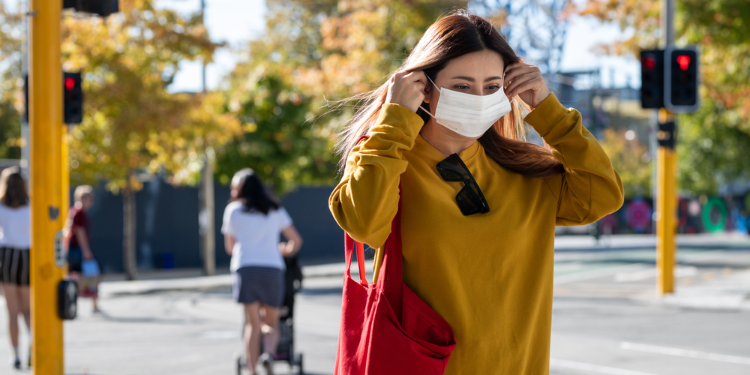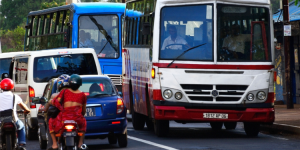
Covid came unexpectedly and struck the whole world. Between lockdowns and “waves”, some regions have dealt with it better than others. Notably, Australia and New Zealand were among the countries famous for their strict measures, and they proudly showed that they have managed to keep for a while the number of cases at a minimum. But at what cost?
Australia
Chasing a virus is almost an impossible task. The overwhelming fear of catastrophic scenarios, like the one in Lombardy or in China at the beginning of the pandemic, brought consciousness to every corner of the world. It agitated leaders, motivated the entrepreneurs and kept businesses locked for nearly two years. That was the case in the Land Down Under, where the introduced travel restrictions were among the strictest in the world, creating a protected bubble that doesn't allow anyone to get in unless they are citizens, permanent residents, or immediate family members. Those who are outside Australia when their permanent visa expires cannot return to the country. The passengers that are allowed to enter must provide a negative PCR done in the last 72 hours. Additionally, they must stay in quarantine in the city they arrive for 14 days, following two tests on day 10 and day 12 of the quarantine. While this bubble involved travel between Australia and New Zealand, it has been suspended since September 21, 2021. The two countries plan to limit the entry of travellers until 2022, however, to prioritise the return of skilled migrants. This situation poses a great burden to a large part of the population, as many have immigration family members, who they are not allowed to see since the pandemic. Additionally, the weight of these regulations fall on international students, expats and workers, and the countries face the lowest immigration rate since World War II.
New Zealand
Similar to Australia, since the beginning of the pandemic, New Zealand took strict measures adopting a so-called zero-Covid strategy. Some of the measures were the complete closing of the borders from March 19, 2020, with the exception of citizens and residents. All the arriving citizens (with some exceptions like those who arrive from the Cook Islands and Niue) are obliged to stay 14 days in quarantine. This strategy has proved to be efficient during the waves, however not successful enough riding with the Delta-variant. Additionally, the stark lockdowns and rigorous regulations, especially in the city of Auckland, have received negative reactions from the citizens and by businesses who have suffered terrible losses during this two-year period. While the vaccination rate in the country is increasing, and the government is slowly abandoning the zero-Covid strategy, the borders for foreigners remain closed at least until the beginning of 2022. The restrictions in the country are still ongoing, with a plan to ease them after reaching a vaccination rate of 70%. This is expected to happen around December 1. New Zealand Prime Minister Jacinda Ardern recently expressed that alongside vaccination and rigorous testing, there might be lifting of the restrictions at the beginning of next year. Currently, the city of Auckland is shifting from alert level 3 (with the most rigorous measures) to alert level 2, which means that people can go to work, however, with respecting distance rules. Businesses, services, and individuals are obliged to display the official NZ Covid Tracer QR code to track infections and immunisations.
Personal experiences
Kathy is a pathologist of Macedonian origin. She lives in Perth, stating that the West Coast was not as disturbed as the East and that the only lockdowns for them lasted a couple of weeks at the beginning of the pandemic, few days during the holiday time, and a couple of weeks in June 2021. As an essential worker, Kathy's everyday life wasn't severely affected, as she continued working as usual, with the obligation of masks and distance. She could notice businesses like beauticians and hair salons being closed for six weeks, but also that these businesses were helped by the government. Additionally, employees who have lost their jobs received job seeker money. However, some of Kathy's plans were interrupted due to the impossibility to travel and visit her relatives in Macedonia. According to the Australian government, she will be able to travel once 80% of the population is vaccinated. For her, especially as a medical worker, the vaccination was easy, and in addition, she believes that the country offers good free opportunities for testing in drive-through clinics. Kathy values the time of lockdown because it allowed her to spend some more family time with her husband.
Lucas is a Brazilian who lives on the East Coast of Australia. He notes that the government imposed a lockdown in order to block the movement of the people, as well as to track the infected persons. He acknowledges the fact that many businesses have been helped in case of a financial loss. However, in his case, the lockdown was perceived as difficult and depressing. Working in construction, the option of smart working was not possible, and his work was seriously affected. Lucas comprehends the seriousness of some cases, as he has a friend in Brazil who has lost three family members due to the virus. However, he believes that the Australian government could have done a better job in organising the vaccination of the population. Additionally, he feels uncomfortable with the complex measures not allowing travelling and visiting one's family. "This situation", he says, "can cause lot of depression and suffering to many immigrants who are crucial for the Australian economy". His plans to visit his family have been interrupted for two years, and he cannot visit them for the time being.
Giovanni comes from Italy and lives in New South Wales, where the state has reached 60% of vaccination. He finds this good news because he believes the high vaccination rate will lead to the final lifting of restrictions for pubs, clubs or restaurants. He recalls the latest curfew imposed due to the high numbers of infected people and seeing police and helicopters, as well as military patrols checking his local area. Giovanni states that since 2020 the government has closed the borders, and while for expats holding temporary visas, it is possible to leave the country, they cannot come back. He finds this decision good at the beginning of the pandemic but not something that can continue going on forever. For him, the lockdown was difficult, as it made it almost impossible to see his friends living in different suburbs, as the current rules don't allow movement more than few kilometres from the house. He spends his time in reading, training and writing, and is dedicated to his work as a journalist writing opinion articles for an Italian newspaper. He feels the burden of loneliness due to the impossibility to move freely around the city centre and to the beach. Giovanni notices businesses in the field of hospitality crawling because of the lack of tourists. He believes the main problem is the shortage of new students and skilled immigrant workers, especially in the fields of healthcare and care for the elderly. Being himself part of this sector, he is vaccinated but still does not have the possibility to travel. He would like to visit some of the beauties of Australia and New Zealand, and he is confident that once the vaccination rate is high enough, the lockdown will stop and allow people to travel and attend bars and restaurants. He has his objections to the way things were handled but does not criticise the government, as he believes that it is the easiest to judge behind a computer.
Compared to the West Coast, the big cities in the East of Australia are much stricter and much more challenging for young workers. Carmela is an Italian-Australian living in Sydney. She remembers the beginning of the pandemic, when the first actions of the Australian government were closing restaurants, limiting the number of people on the public transport and their vicinity and imposing masks indoors. The first lockdown lasted for two months, and the Australians in financial trouble were provided help. This, however, according to Carmela, is not nearly enough for people who have a mortgage to pay. She has perceived the lockdowns as a threat to her dreams, for which she has dedicated years of hard work. She expresses the emotional weight that this way of living has brought, making panic attacks, poor sleep, anger and sadness part of her daily life. Her role as a student and her job as a customer service agent have been afflicted too, which led to her losing her job. While having a light experience with the infection, she states that the lockdown was detrimental to her mental health. She believes that the government could have done better, taking into consideration those who are vulnerable to the disease, instead of putting pressure on young and healthy people whose businesses, relationships and mental health have been put on hold for around two years. Due to the travel restrictions, her plans have been altered, as all of her family lives in Italy, and she is not able to visit them.
Some of the most beautiful and remote areas around the world have been troubled by the virus. However, it is up to governments to decide in which direction the narrative will go, as it is important to consider the wellbeing of all social groups. For now, it is up to the travellers to set their priorities and to decide whether their current location offers them benefits and possibilities to overcome this crisis.



















